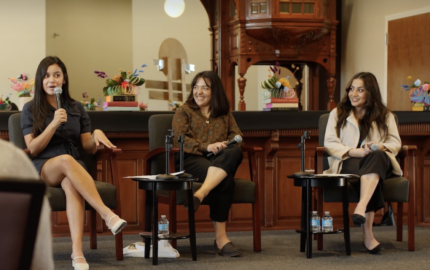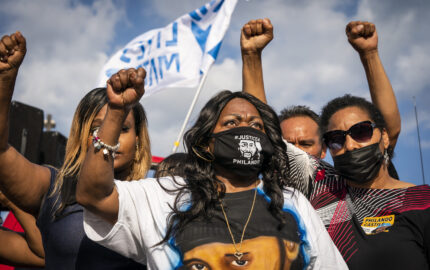
At the Rochester Democrat & Chronicle, we launched a series of investigative reports about two and a half years ago looking at disparities in areas such as housing, education, criminal justice, and jobs. At first, we received both positive and negative reactions. The negative reactions were from people who believed we were making a big deal over nothing, that race was no longer a problem in America. Through our reporting, we showed that it is a problem and that we, as a community, needed to get our arms around it. We used those reports to start a conversation about how we can build a more inclusive community. We then partnered with a variety of organizations—the YWCA, the Rochester Museum and Science Center, the Rochester Area Community Foundation, and Facing Race, Embracing Equity.
Before the editorial board launched its “listening tour,” we put out calls in print and on digital platforms for people to come meet with us to talk about race. Many of our meetings were out in the suburbs because we wanted to engage more suburban people. Our suburbs are predominantly white, and our city is predominantly black. We wanted to provide opportunities for people who normally wouldn’t be able to talk to one another to sit down and engage in a discussion about racial issues.
Only eight people showed up for our first one, but the crowd grew with each tour, up to about 50 community members and political leaders at our final meeting. We received pushback from some who maintained that the Democrat & Chronicle was, in the words of one woman, “stirring the pot,” creating trouble. But the people interested in advancing our community shared their views through social media, blog postings, letters to the editor and in meetings. We believe “Unite Rochester,” as we called the initiative, has helped build greater awareness.
We believe "Unite Rochester" has helped build awareness—now we're turning our findings into real action
We’re now working on how we can turn some of our findings into real action. Last year, we created the Unite Rochester Court Academy to help citizens better understand our criminal justice system. One initiative for 2015 is to create a Community Crisis Response Team that would help our leaders and community respond well if Rochester experienced the kinds of problems we’ve seen in Ferguson and Baltimore.
We know that what’s true in the community is true inside our own newsroom. The culture can’t be changed overnight. Diversity is not a problem you can fix and then it stays fixed. It’s something you have to continue to care about all the time. As minority populations grow and change the demographics of our communities, it becomes even more important for it to be part of your thinking day to day.


